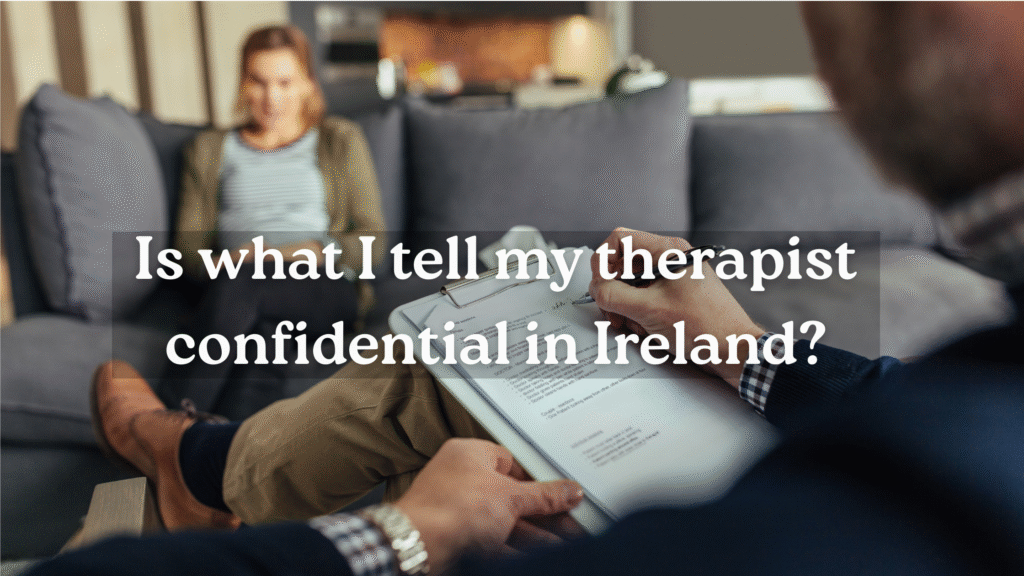Psychotherapy is most effective when you can be open and honest. If you’ve never seen a psychologist before, you may have some questions about therapy confidentiality.
Will the things I discuss in therapy be kept private?
One of the cornerstones of therapeutic treatment is trust and confidentiality, so people feel safe to expose vulnerabilities.
Psychologists understand that for people to feel comfortable talking about private and revealing information, they need a safe place to talk, without fear of that information leaving the room. They take your privacy very seriously.
Clients often feel a sense of comfort in knowing that they can be honest in their sessions without having their privacy leaked to a third party. Therapist confidentiality lays the foundation for trust, which can allow the therapy to become more individualized and effective.
Many countries have their own laws and regulations regarding the handling of confidentiality and reporting. The General Data Protection Regulation (GDPR) is used in Ireland, and the Health Insurance Portability and Accountability Act of 1996 (HIPAA) is used in the United States.
At your first visit, a psychologist should give you written information explaining privacy policies and how your personal information will be handled. This information will explain that in some cases, there are exceptions to the privacy rule, as described below.
At your first visit
At your first visit, a psychologist should give you written information explaining privacy policies and how your personal information will be handled. This information will explain that in some cases, there are exceptions to therapy confidentiality, as described below.
When might a therapist have to break therapy confidentiality?
There are a few specific and clear instances when therapists are required to report personal information about their clients:
If the client poses a danger to themselves or others
If the therapist suspects the abuse of a child or an elderly or otherwise dependent adult
If they are legally forced to by court order
Most therapists will include a detailed explanation of these exceptions in their privacy policy, which the client reviews and signs before their first session.
They may also mention it in conversation in one of their early sessions in case the client has any concerns about confidentiality that could prevent them from fully engaging in therapy.
Will the therapist tell me what my child/adolescent talks about?
It’s a very vulnerable thing to have your child go to counseling. And naturally, parents often want to be kept in the loop about their child’s progress in therapy.
However, what is said between a counselor and an individual client is confidential, even when the client is a minor.
It’s important for the teenager to trust an adult therapist with difficult thoughts and feelings, and legally and ethically the therapist has to keep it confidential.
However, the therapist will keep parents informed of how the child is doing. What therapists say is that parents can know about the process of the therapy, but not about the content.
Only when a young client is engaging in risk-taking behaviours that are life threatening (i.e., suicidal actions, self-harm) will parents need to be brought into the conversation,
Do therapists talk about clients outside of sessions?
There may be times when your therapist discusses your situation with other therapists or their supervisor, which is known as consultation. Even in those situations, the therapist is obligated to keep your identity and privacy protected as much as possible.
Ethical therapists never share information about people in therapy casually with friends, family or co-workers.
When in doubt about confidentiality, Ask your therapist
It’s crucial for the therapist-patient relationship that you feel at ease sharing personal information during therapy sessions. Your therapist understands this and is happy to answer any questions you may have about your privacy or therapy confidentiality during treatment.
If you’re interested in therapy, give us a call on 01 556 3335, or book a session with one of our expert therapists online. Have questions? You can also book a free 15-minute consultation with a member of our team to get personalised guidance.
